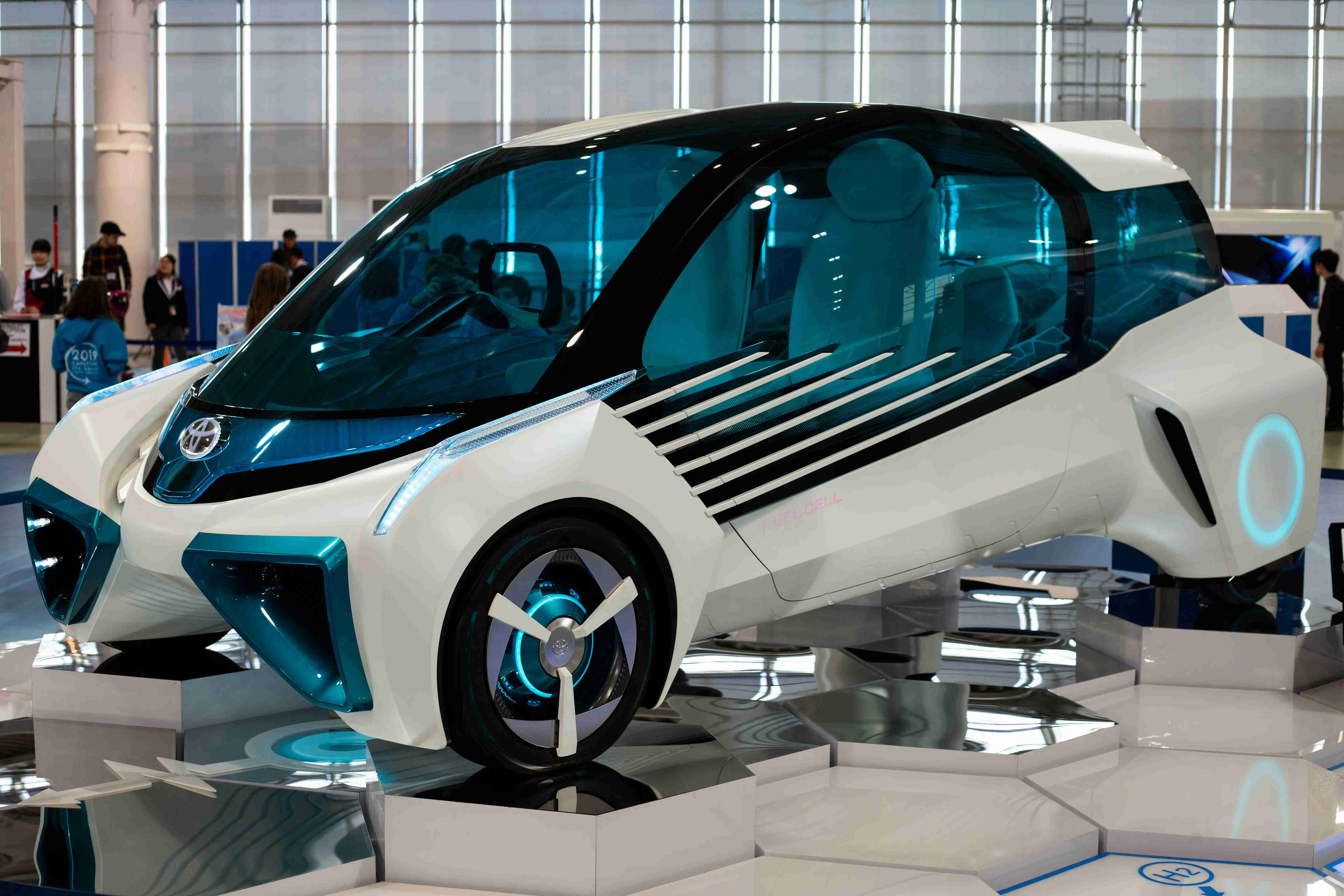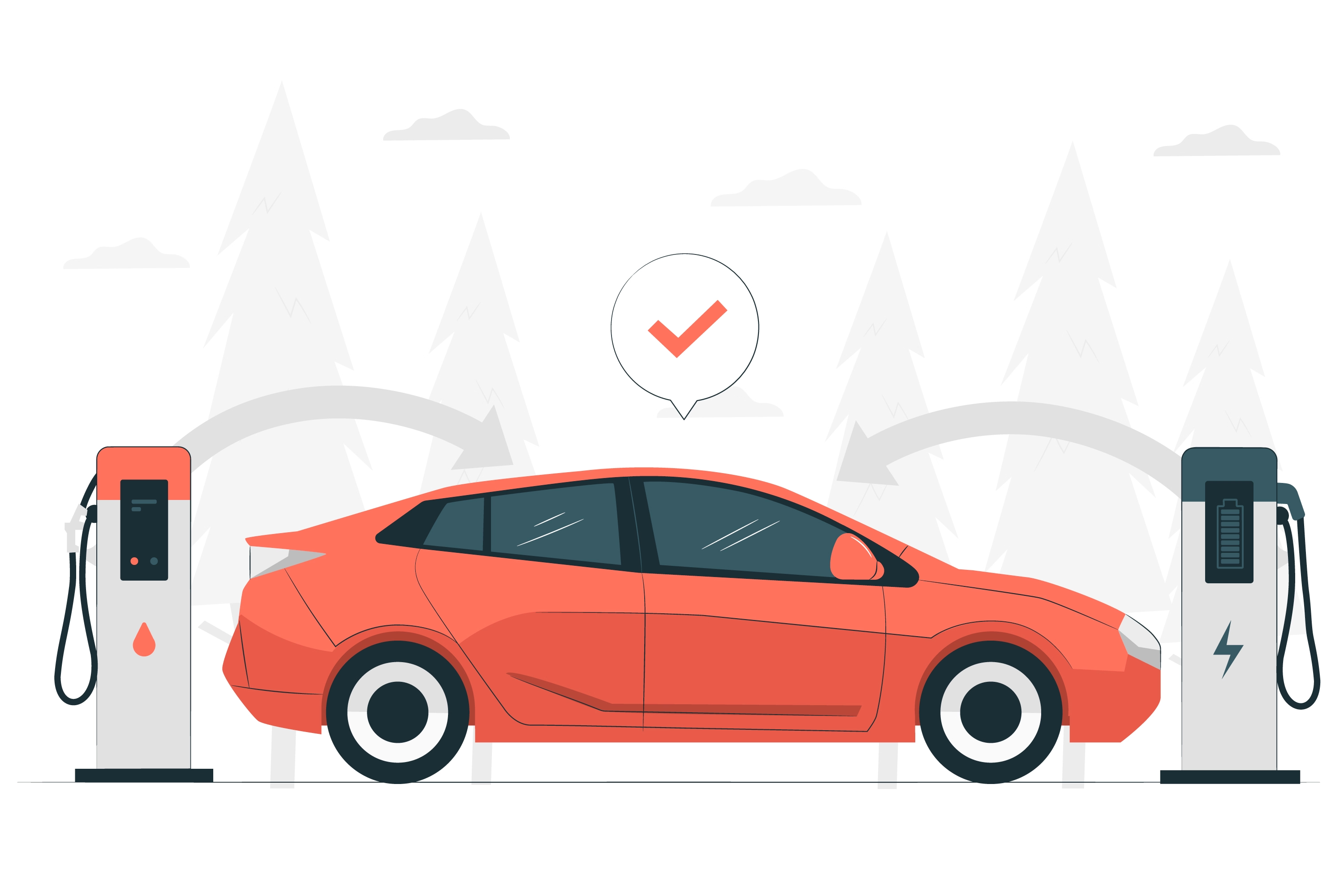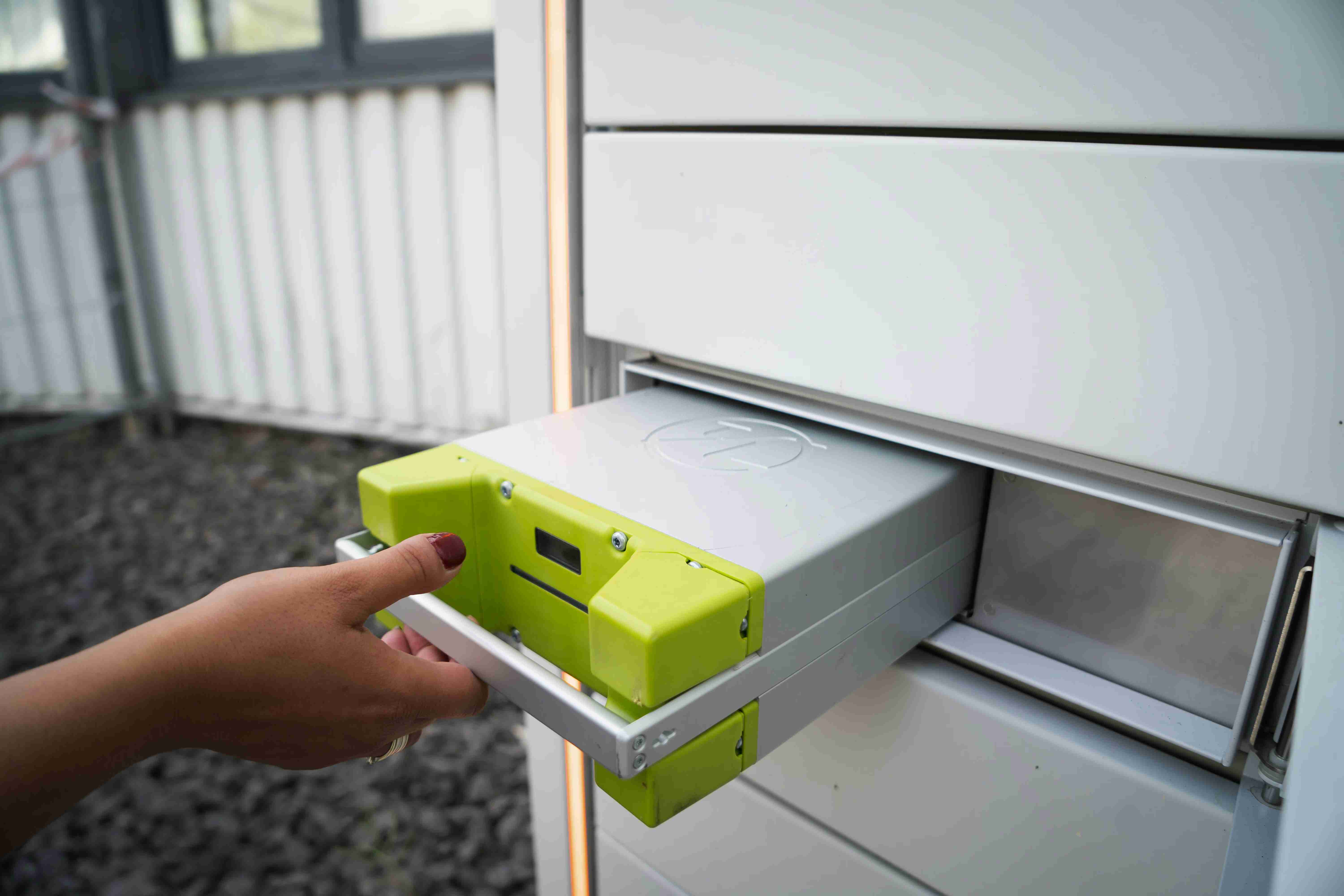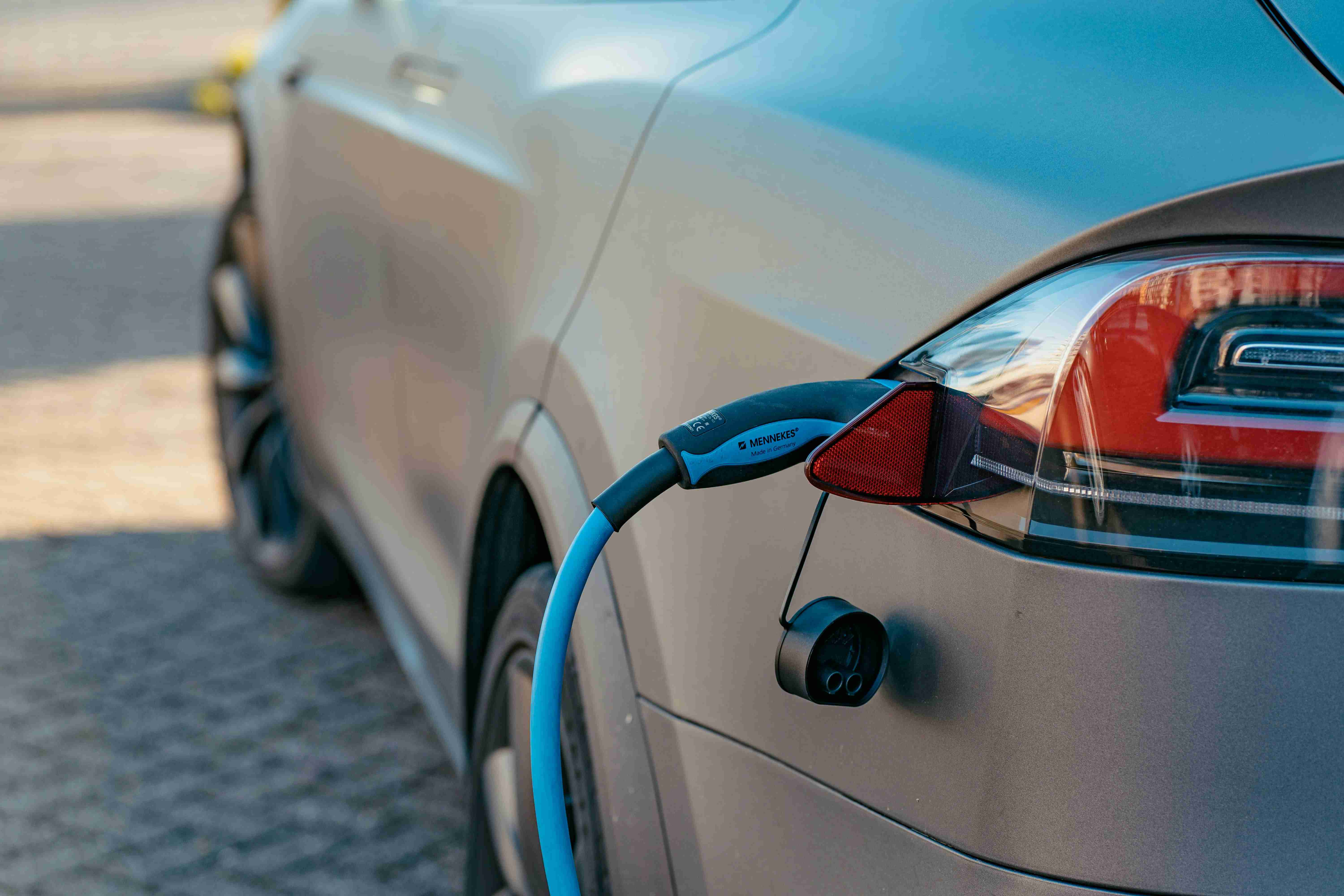Electric vs. Hydrogen: The Future of Sustainable Transportation
Electric Vehicles: The Current Front-Runner
So, this is quite an old debate. Unfortunately, there's no clear winner (I guess it depends on who you ask). However, both technologies are very promising. Electric vehicles have been around for a while now, and they've seen tremendous advancements. Here's a quick rundown of what makes EVs tick and why they're currently leading the charge in sustainable transportation, despite the strong potential of hydrogen fuel cell vehicles (FCVs).
How They Work
EVs use a battery pack to store electrical energy, which powers an electric motor. When you press the accelerator, electricity from the battery is sent to the motor, which then turns the wheels. This process is incredibly efficient, with EVs converting about 90-95% of the electrical energy from the battery to power the wheels, compared to internal combustion engine vehicles, which only convert about 20-30% of the energy stored in gasoline.
The convenience of home charging and the ever-expanding network of public chargers have made EVs a practical choice for many drivers. Modern EVs come equipped with regenerative braking systems that capture and reuse energy during braking, further enhancing their efficiency. Popular models include the Tesla Model S, Nissan Leaf, and the Chevy Bolt.
Pros of Electric Vehicles
- Zero tailpipe emissions: EVs produce no direct emissions, helping to reduce air pollution and greenhouse gases.
- Lower operating costs: Electricity is generally cheaper than gasoline or diesel, and EVs have fewer moving parts, leading to lower maintenance costs.
- High energy efficiency: EVs convert about 90-95% of the electrical energy from the battery to power the wheels.
- Increasingly robust charging infrastructure: With more charging stations being installed worldwide, range anxiety is becoming less of an issue.
- Government incentives and rebates: Many governments offer financial incentives to encourage the adoption of EVs, making them more affordable.
Cons of Electric Vehicles
- Limited range compared to gasoline vehicles: Although improving, EVs still have a shorter range on a full charge compared to traditional vehicles.
- Longer refueling times: Charging an EV takes longer than refueling a gasoline vehicle, even with fast chargers.
- Battery degradation over time: EV batteries lose capacity with use, reducing range and performance.
- Higher upfront costs: EVs can be more expensive to purchase than their gasoline counterparts, although this gap is closing.

Hydrogen Fuel Cell Vehicles: The Contender
Hydrogen FCVs are the new kids on the block. They offer a different approach to clean transportation. Here's how they work and what they bring to the table:
How They Work
FCVs use a chemical process called electrolysis to combine hydrogen with oxygen to produce electricity, water, and heat. This process occurs in the fuel cell stack, where hydrogen gas from the vehicle's tank is combined with oxygen from the air. The electricity generated powers the vehicle's electric motor, while the only byproduct is water vapor, making FCVs extremely clean.
Hydrogen is stored in high-pressure tanks and can be refueled quickly, similar to gasoline vehicles. This refueling process takes just a few minutes, offering a significant advantage over the longer charging times of EVs. Models like the Toyota Mirai and Hyundai Nexo are leading the way in this technology.
Pros of Hydrogen Fuel Cell Vehicles
- Zero tailpipe emissions (only water vapor): FCVs emit only water vapor, making them extremely clean.
- Quick refueling times (comparable to gasoline): Hydrogen refueling takes just a few minutes, much faster than charging an EV.
- Longer range than most EVs: FCVs can travel further on a single refueling compared to many EVs.
- Potential for green hydrogen production: Hydrogen can be produced using renewable energy sources, reducing the overall carbon footprint.
Cons of Hydrogen Fuel Cell Vehicles
- Limited refueling infrastructure: There are far fewer hydrogen refueling stations compared to electric charging stations.
- High production and fuel costs: Producing and storing hydrogen is currently expensive, which drives up the cost of FCVs.
- Hydrogen storage and transport challenges: Hydrogen is difficult to store and transport due to its low energy density and the need for high-pressure tanks.
- Less energy efficient compared to EVs: The process of producing hydrogen, converting it to electricity, and using it to power the vehicle is less efficient than the direct use of electricity in EVs. (I won't go into to much detail in this, but to summarize the reason behind this in one phrase: laws of Thermodynamics)
Comparison Table
| Aspect | Electric Vehicles (EVs) | Hydrogen Fuel Cell Vehicles (FCVs) |
|---|---|---|
| Emissions | Zero tailpipe emissions | Zero tailpipe emissions (water vapor) |
| Range | 150-370 miles | 300-400 miles |
| Refueling/Recharging Time | 30 minutes to 12 hours | 3-5 minutes |
| Energy Efficiency | 90-95% | 60% |
| Infrastructure | Extensive and growing | Limited and developing |
| Vehicle Cost | Higher upfront costs, decreasing | High |
| Fuel Cost | Low | High |
| Maintenance | Low | Moderate |
The Verdict
Both electric and hydrogen fuel cell vehicles have their merits and challenges. EVs currently have the edge with a more developed infrastructure and better energy efficiency. However, hydrogen FCVs offer quicker refueling and longer ranges, making them a promising option for the future. As technology advances and infrastructure develops, we may see a future where both technologies coexist, each serving different needs and preferences in the quest for sustainable transportation.
As technology advances and infrastructure improves, we may see a future where both technologies coexist, each serving different needs and preferences. For now, the choice depends on your priorities: convenience and efficiency with EVs, or quick refueling and longer range with FCVs.
For more insights and guidance, check out our detailed articles on EV ownership and the latest in sustainable transportation. And remember, the future is green!



